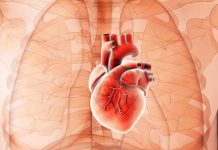Extreme heat events, such as heatwaves, are associated with a greater risk of adverse cardiovascular incidents, especially for people with existing cardiovascular diseases, according to a study published in the Canadian Journal of Cardiology.
Typically, extreme heat poses a great threat to human health, increasing the risk of morbidity and mortality. Risk factors for heat-related hospitalization are age, chronic medical illnesses, social isolation, certain medications, and lack of access to air conditioning.
And among chronic medical illnesses, cardiovascular diseases are often associated with heat-related hospitalization and death.
Senior author Dr. Daniel Gagnon of the University of Montreal, Canada, said, “The Intergovernmental Panel on Climate Change (IPCC) recently reported that global temperatures are rising at a greater rate than previously projected and that the number of extreme heat days will significantly increase across most land regions.”
“Although we don’t yet fully understand the reasons, people with cardiovascular disease are at greater risk of hospitalizations and death during extreme heat events,” he added.
The researchers looked at evidence-based epidemiological studies and found a consistent connection between extreme heat and a greater risk of adverse cardiovascular events. Also, they found that heatwaves significantly increase the risk of death from heart failure, ischemic heart disease, and stroke.
Dr. Gagnon noted, “Although the effects of extreme heat on adverse cardiovascular events have been explained in the context of heatstroke, many events occur without heatstroke, and the mechanisms of these events in the absence of heatstroke remain unclear. It is likely that heat exposure increases myocardial oxygen needs.”
Considering these findings, the researchers propose preventive strategies to minimize cardiovascular risk during extreme heat events. The strategies should aim to reduce the extent of hyperthermia and dehydration.
Studies have found that simple alternatives to air conditioning, such as electric fans, skin wetting, and immersing the feet in tap water could help keep you keep cool during extreme heat events.
Dr. Gagnon said, “Air conditioning is the most effective strategy that can be recommended since it effectively removes the heat stimulus and minimizes the risk of adverse cardiovascular outcomes. However, less than one-third of global households own air conditioning.”
“Cardiovascular health professionals need to be aware of the negative consequences of extreme heat on cardiovascular health,” he explained.
“A better awareness and understanding of the cardiovascular consequences of extreme heat, and of the measures to take to prevent and mitigate adverse events, will help us all assess the risk and optimize the care of patients exposed to an increasingly warm climate.”























